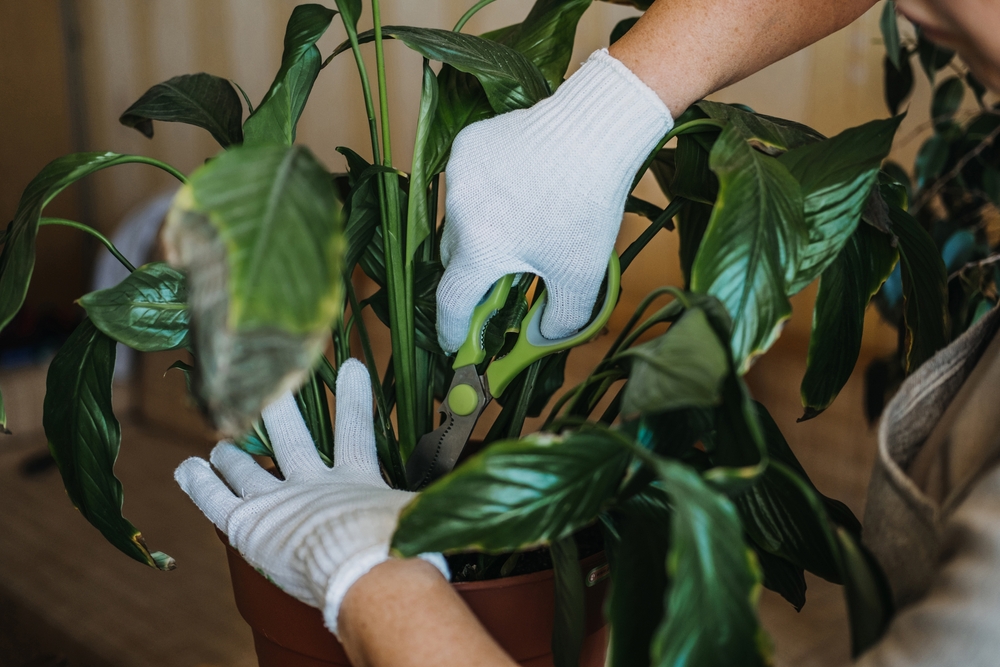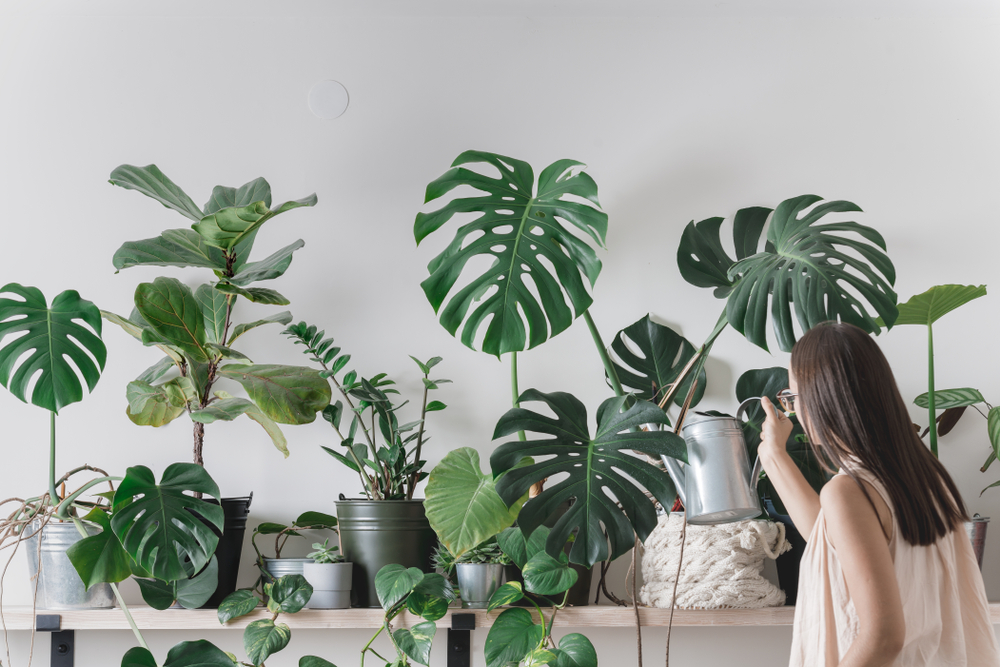 Focusing on plants is both incontestably fulfilling and distressing. Whenever your plants are flourishing, everything is great on the planet. In any case, when one begins to look troubled, you right away look the assistance to save your indoor plants from the verge of death.
Focusing on plants is both incontestably fulfilling and distressing. Whenever your plants are flourishing, everything is great on the planet. In any case, when one begins to look troubled, you right away look the assistance to save your indoor plants from the verge of death.While there are many justifications for why your indoor plants can abruptly begin to lose their gloss, a small bunch of average plants messes up specialists see individuals make constantly. Also, there's a decent opportunity we've all made a few of them. Regardless of whether you're expecting to stay away from any issues from now on or are attempting to sort out how in the world you veered off-track, here's actually what you should be familiar with keeping your plants in excellent condition.
The One Big Mistake That You Are Not Pruning Your Indoor Plants Regularly
Not simply outside nursery workers ought to prune their plants-it's additionally the individuals who have house plants inside. Many proficient nursery workers and flowers fear it since they don't know how to move toward it. Shockingly, it's much more straightforward than you'd anticipate. Ponder how you want to manage the impasses of your hair to animate new development. To broaden a plant's blossoming period and empower better, more giant sprouts, you should remove dead and bite the dust blossoms by clipping at the foundation of the bloom's head. It would help if you had sharp pair of clean scissors or a nursery pruning apparatus like trimmers. Intently look at plants and eliminate any sick, stained, or leggy leaves and stems; just cut them and give them a chance to grow.

The Fertilizer You Are Using Can Be Harmful
You'd figure purchasing composts would do your plants great, yet they regularly don't require it. I typically prompt against purchasing compost except if a houseplant is genuinely attempting to develop. Assuming they're as of now progressing admirably, you can give them a lift with some DIY fertilizer. It's not problematic to make your custom-made fertilizer involving kitchen scraps, garden garlands, and compost supercilious you can get your hands on some. All indoor and open-air plants love manure.Repotting Is Essential - Try To Replace Old Pots with New Ones
Repotting your plants can be alarming, yet this present time's the opportunity to overcome your feelings of dread and pull out all the stops. "Late winter, before the developing season, is the best opportunity to repot your plants. Also, repotting doesn't constantly mean moving your plant into a greater grower; at times, it just means changing your plant's preparing blend to give it new supplements from the new blend. "In any case, assuming your plant has congested its present grower, pick another pot that is just marginally bigger. Upgrading should be a steady interaction as the year progresses. You don't need your plant 'swimming' in preparing a blend that can fit overwatering and possibly root decay.Be Moderate While Watering – Overwatering Can Be Harmful
Overwatering is another regular misstep the vast majority make while dealing with their indoor plants. Ironically the purpose for larger part houseplants not enduring isn't disregarded; however, an excess of care through overwatering! The amount and recurrence of watering indoor plants generally differ from species to species. Succulents, plants, desert flora, and greeneries all have different watering needs. Ensure you realize how much water each plant needs instead of fixing a conventional watering plan. Here is an instructive article on the best way to water your indoor plants correctly.Don’t Treat Your Plants As Same Way As Your Outdoor Plants.
Indoor plants are different in countless ways from outside plants. They need an assorted set of caring systems, and they have a place with unmistakably isolated everyday natural surroundings. For example, your open-air plants need a lot of daylight, continued pruning, and continuous watering. That isn't true with houseplants. They can support very little water in a lesser measure of light and practically no pruning. It would help if you treated indoor plants uniquely compared to outside plants. Any other way, you could wind up with not exactly solid outcomes.Overcrowding Indoor Plants In Limited Area
Stuffing an excessive number of houseplants in a similar region has been displayed to block their development. Like we people, indoor plants need their own space to develop and thrive. As it's been said, don't tie up your resources in one place, we say we don't swarm every one of your plants on a similar plant stand. Instead, spread them over different indoor plant stands with the goal that they have adequate space to relax. Stuffing likewise alludes to preparing a plant in a more modest pot than the size it needs. By doing that, you don't give their underlying foundations adequate room to spread and develop. In a perfect world, each plant should be pruned in an empty pot with a lot of soil and space to spread.





.jpg)





Comments (0)
Leave a comment